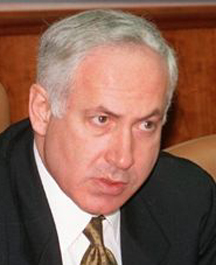JERUSALEM (Reuters) – Israel rejected concerted criticism from the United States and Europe yesterday over Prime Minister Benjamin Netanyahu’s decision to expand settlement building after the United Nations’ de facto recognition of Palestinian statehood.
Washington urged Israel to reconsider its plan to erect 3,000 more homes in the occupied West Bank and East Jerusalem, saying the move hindered peace efforts with the Palestinians.
Britain, France, Spain, Sweden and Denmark summoned the Israeli ambassadors in their capitals to give similar messages.
An official in Netanyahu’s office said Israel would not bend. “Israel will continue to stand by its vital interests, even in the face of international pressure, and there will be no change in the decision that was made,” the official said.
Angered by the UN General Assembly’s upgrading on Thursday of the Palestinians’ status in the world body from “observer entity” to “non-member state”, Israel said the next day it would build the new dwellings for settlers.
Such projects, on land Israel captured in a 1967 war, are considered illegal by most world powers and have routinely drawn condemnation from them. Approximately 500,000 Israelis and 2.5 million Palestinians live in the two areas.

In a shift that raised the alarm among Palestinians and in world capitals, Netanyahu’s pro-settler government also ordered “preliminary zoning and planning work” for thousands of housing units in areas including the “E1” zone east of Jerusalem.
Such construction in the barren hills of E1 has never been put into motion in the face of opposition from Israel’s main ally, the United States. Building in the area could bisect the West Bank, cut off Palestinians from Jerusalem and further dim their hopes for a contiguous state.
Israeli television stations reported Jerusalem’s district planning commission would soon approve plans for several thousand more housing units, including more than 1,000 Israel had shelved two years ago after angering Washington by publishing the plans before a visit by Vice President Joe Biden.
The settlement plan, UN Secretary-General Ban Ki-moon said, would deal “an almost fatal blow” to a two-state solution to the Israeli-Palestinian conflict.
French President Francois Hollande said he was “extremely concerned” and Washington made clear it would not back such Israeli retaliation over the UN vote, sought by Palestinians after peace talks collapsed in 2010 over settlement building.
“We urge Israeli leaders to reconsider these unilateral decisions and exercise restraint as these actions are counterproductive and make it harder to resume direct negotiations to achieve a two state solution,” White House spokesman Jay Carney told a briefing.
Ahead of a Netanyahu visit this week, Germany, considered Israel’s closest ally in Europe, urged it to refrain from expanding settlements, and Russia said it viewed the Israeli moves with serious concern.
Israeli Finance Minister Yuval Steinitz said Israel could not have remained indifferent to the Palestinians’ unilateral move at the United Nations.
“I want to tell you that those same Europeans and Americans who are now telling us ‘naughty, naughty’ over our response, understand full-well that we have to respond, and they themselves warned the Palestinian Authority,” he said.
Palestinian chief negotiator Saeb Erekat said building in E1 “destroys the two-state solution, (establishing) East Jerusalem as the capital of Palestine and practically ends the peace process and any opportunity to talk about negotiations in the future”.





